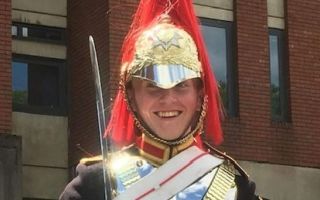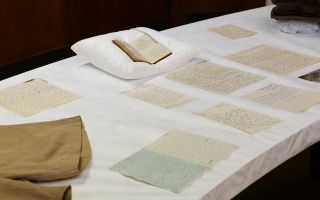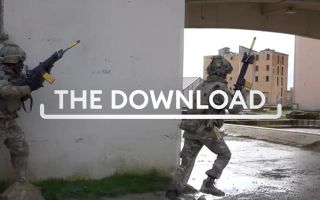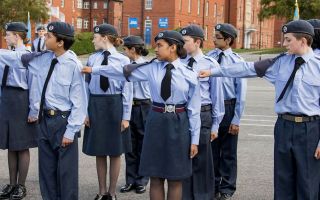Army veteran recalls helping Belsen survivors emotionally – and with chocolate
I've been speaking to Mervyn Kersh, a 100-year-old Jewish British Army veteran.
Mervyn fought in the Second World War in the Royal Army Ordnance Corps.
Having been part of the D-Day landings in 1944 – he tells me the Légion d'Honneur is the medal of which he's most proud – he then found himself in Germany in April 1945.
Eighty years ago today, British forces liberated the Nazi-run Bergen-Belsen concentration camp in Germany.
It was first established in 1940 as a prisoner of war camp, later becoming a concentration camp. Around 60,000 starving and mortally ill people were found packed together without food, water or basic sanitation.
I showed Mervyn archive footage from the liberation of the camp. "This does remind me of those days when war could have been prevented," he said.
Mervyn came across newly liberated prisoners at Hanover railway station, having been separated from his unit following three days in hospital with an ear infection.
He tells me the survivors were still wearing their camp uniforms as they had no other clothes.
He explained people compared notes about their home towns and families, adding: "Those who had any news, it wasn't good news."
"I didn't ask them what their experience was like, that was obvious, but I asked them what their future is," he said.
"The first thing for all of them was to find out what happened to their homes, their families, businesses."
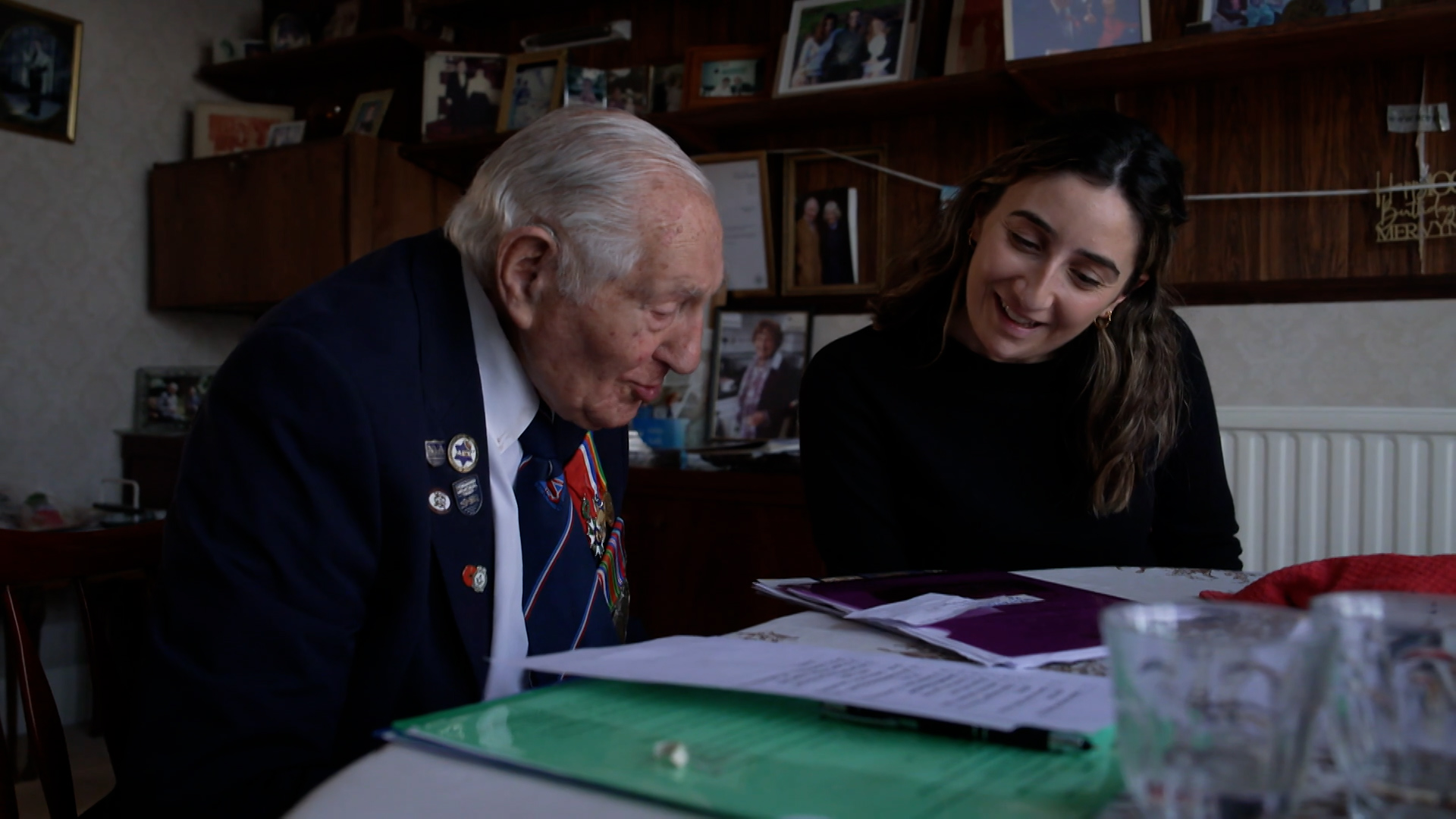
Mervyn was forbidden from entering Bergen-Belsen camp due to a typhus epidemic.
He tells me about his interaction with the prisoners he did meet.
"Well, the only way I helped them, apart from verbally and emotionally, was to give them chocolate," he explained.
"Every soldier got a bar of chocolate and 50 cigarettes a week. I used to change cigarettes because I didn't smoke.
"So I had two chocolates I brought the first day, and I took it out – and to see their eyes light up. They hadn't seen chocolate for years, and I gave them that.
"After that, I collected from everyone one I could see, and I'd take another 50 or 60 bars and distribute them to people, and they all loved it.
"They were prisoners for nothing. I say for "nothing" just because they were Jews. If that is for nothing.
"It was a terrible situation. Very upsetting situation, giving a determination to say 'never again'."
Mervyn says meeting these prisoners justified why he signed up to fight.
"That was one of the reasons I was interested in going in the forces, to help release these people, which I did," he said.
"It gave me great satisfaction knowing that I had achieved that – and defeated the Germans, of course.
"Not alone – I did have some help."

